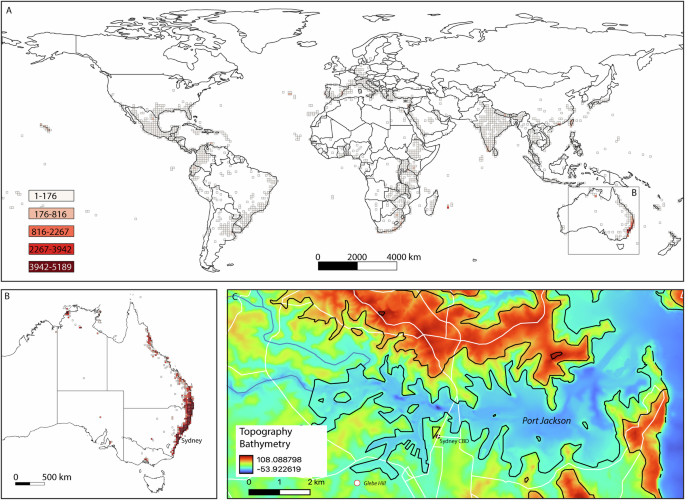Report on Economic Disparities in Major League Baseball and Alignment with Sustainable Development Goals
This report analyzes the economic landscape of Major League Baseball (MLB), with a specific focus on the Los Angeles Dodgers, through the framework of the United Nations Sustainable Development Goals (SDGs). The team’s significant financial capacity and its impact on league-wide competitive balance raise concerns regarding the principles of equality, fair work, and institutional strength.
Analysis of Economic Imbalance and SDG 10 (Reduced Inequalities)
The current financial structure within MLB presents a significant challenge to achieving the objectives outlined in SDG 10, which aims to reduce inequality within and among countries. The case of the Los Angeles Dodgers exemplifies a growing disparity within the league.
Concentration of Financial Resources
The Dodgers’ operational budget, reflected in a luxury tax payroll of approximately $416 million, creates a substantial economic gap between them and other franchises. This financial dominance enables them to assemble a roster widely perceived as overpowering. The potential pursuit of top-tier free agent Kyle Tucker, with a projected contract value near $400 million, would further concentrate talent and financial power, exacerbating existing inequalities within the league.
Impact on Competitive Balance
The concentration of resources in a single team has direct consequences for the league’s competitive integrity, a core tenet of reducing inequality in a sporting context.
- Erosion of Parity: The ability to consistently outspend competitors undermines the potential for the league’s other 29 teams to compete on a level playing field.
- Stakeholder Discontent: Widespread fan frustration indicates a perception that the competition is no longer equitable.
- Predictable Outcomes: The Dodgers’ status as odds-on favorites to win consecutive championships suggests a move away from balanced competition toward a system dominated by economic might.
Labor Relations and SDG 8 (Decent Work and Economic Growth)
The situation also has implications for SDG 8, which promotes sustained, inclusive, and sustainable economic growth, full and productive employment, and decent work for all. While top players command high salaries, the overall economic structure of the league and its labor relations are under strain.
Market Distortion and Labor Negotiations
The Dodgers’ financial capacity, demonstrated by their willingness to offer contracts valued at hundreds of millions of dollars (e.g., $600 million deferred for Juan Soto, a potential $400 million for Kyle Tucker), significantly influences the free-agent market. This creates a wage scale that is unattainable for most teams, impacting league-wide salary structures.
Threats to Institutional Stability
The growing economic disparity is a key factor in labor relations. The report notes that the current climate could set the stage for contentious collective bargaining agreement negotiations. This threatens the stable, collaborative partnership between the league and its players necessary for sustainable economic growth and ensuring fair working conditions for all athletes, not just the highest earners.
Institutional Governance and SDG 16 (Peace, Justice and Strong Institutions)
The effectiveness of MLB’s governing institutions in ensuring fairness and justice, a principle of SDG 16, is called into question by these economic trends.
Efficacy of Regulatory Mechanisms
The league’s luxury tax system is designed to promote competitive balance. However, the Dodgers’ ability to comfortably exceed this threshold suggests the mechanism is insufficient to create an equitable system. The institution appears unable to prevent the severe concentration of power and resources, undermining its goal of fostering a just competitive environment for all 30 member teams.
Stakeholder Confidence and Future Stability
The perception of institutional failure has several negative consequences:
- The belief that “only the Dodgers” can afford premier talent erodes faith in the league’s commitment to fairness.
- This lack of confidence contributes to a volatile environment that could lead to labor disputes, disrupting the sport.
- A failure to address these inequalities weakens the institution of MLB and its social contract with fans and teams.
Analysis of the Article in Relation to Sustainable Development Goals
1. Which SDGs are addressed or connected to the issues highlighted in the article?
Based on a thorough analysis of the provided article, there are no Sustainable Development Goals (SDGs) that are directly or indirectly addressed or connected to the issues discussed. The article’s content is exclusively focused on professional sports, specifically Major League Baseball team payrolls, player contracts, free agency, and the competitive balance within the league. These topics do not align with the social, economic, and environmental objectives of the 17 SDGs, which address global challenges such as poverty, hunger, health, education, climate change, and inequality.
2. What specific targets under those SDGs can be identified based on the article’s content?
As no SDGs were identified in the article, no specific targets can be identified. The text does not contain any information related to the 169 targets associated with the Sustainable Development Goals.
3. Are there any indicators mentioned or implied in the article that can be used to measure progress towards the identified targets?
Since no SDGs or corresponding targets could be identified from the article’s content, there are no indicators mentioned or implied that could be used to measure progress. The financial figures mentioned, such as player salaries and team payrolls (e.g., “$416 million luxury tax payroll,” “$400 million for Tucker”), are relevant only to the context of professional sports economics and not to the global indicators used to track SDG progress.
4. SDGs, Targets, and Indicators Table
| SDGs | Targets | Indicators |
|---|---|---|
| None identified in the article. | None identified in the article. | None identified in the article. |
Source: newsweek.com






